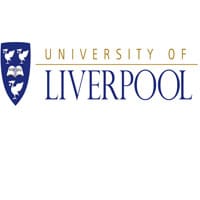
University of Liverpool ‘Communication & Media’ Master & PhD Research Degree 2021
Research Scholarship in Art and Humanities ShortlistOpportunity Details
-
Opportunity ID 96055
-
Degree MasterPH.D
-
Language Requirement TOEFLIELTS
-
Fields of study arts and humanities
-
Opportunity Type : Self Funded
-
Duration 2-6 years
-
Gender MaleFemale
-
Language of Instruction English
Opportunity Description
Program overview
The Department of Communication and Media, School of Arts, Faculty of Humanities and Social Sciences at the University of Liverpool offers postgraduate research degrees in communication and media to both UK and international applicants. The host department is one of the university’s top research sections, providing cutting-edge research related to the most key areas of inquiry in this important field. Hence, if you would like to experience study and research at the university, do apply!
Quick details
Application deadline: Open all year round
Location: UK
Subject areas: Arts and Humanities
Benefits
The department offers the following facilities to scholars:
- Significant library facilities.
- Opportunities for interdisciplinary contributions if you’re completing a research degree
research methods training of high quality. - A frequent program of communication and media seminars open to everyone.
- An annual PGR conference, usually conducted in May, for research students available to all.
- Suitable facilities for students with extra needs, including English language support and adaptive and assistive technologies.
Program structure
Research in the Department of Communication and Media, University of Liverpool, is undertaken within four research groups with an interest in common in the critical, interdisciplinary analysis of various modes of mediated communication across social spaces and fields.
- The Culture, Space, and Memory
- The Discourse & Society
- The Media, Politics, and Society
- Screen & Film Studies
Study choices and fees
| MPhil / PhD | Duration | Home/EU Students | International Students |
| Full time | 2-4 years | £4,407 (2020) | £23,650* ^ (lab-based programmes) £18,000* (non-lab based programmes) |
| Part-time | 4-6 years | £2,204 (2020) | £11,825* (lab-based programmes)
£9,000* (non-lab based programmes) |
The department especially welcomes research proposals that fit with those of its researchers, including:
- Media in humanitarian crises; media and human rights; media coverage of migration and free movement across Europe;
- Latin American culture and the connection between politics and aesthetics; modern photography;
- Rhetoric, policy frameworks, and methodologies that capture the impact and legacy of large-scale urban interventions and events
- Broadcasting history, institutions, and their programming; film and television documentary, television current affairs programming
- Science fiction, fantasy, and ‘cult’ TV and film; Public Relations and promotional cultures with a particular interest in social media;
- Gender, political communication, and news media and how they intersect
- The moral function of communication; conceptions of home, identity and belonging in communicative capitalism
- Critical discourse studies of populist political communication; the intersection of politics and the media as key carriers of public imaginaries of social reality
- Experimental, oppositional, marginal, and other alternative filmmaking histories and practices; the work of Andy Warhol and other artist-filmmakers
- Argumentation Theory, Rhetoric and Discourse Analysis, with a focus on the study of argumentation in strategic communication settings
- Media discourse (especially approaches from a (socio) linguistic perspective) and the practices of dialogue in TV drama
- Media and the city; urban cultural studies; visual culture, space and place; cultural mapping and spatial humanities; popular culture, heritage, and cultural memory
- International and global journalism; young people as media audiences; the Internet’s role concerning online risks and to enabling democratic deliberations
- Political communication during election campaigns, particularly online; social media and their use by voters to communicate politically;
- Stardom/celebrity, Hollywood and transnational cinema, screen performance, cult media, and digital media/Virtual Reality
- The production of news, documentary, and factual content within public service and commercial broadcasting, and within community and citizen journalism.
- Media discourses and representations in connection to gender and sexuality; the role of media in identity and community
- American independent cinema; Hollywood and global entertainment; cinema and youth cultures; the B Film, exploitation and creativity; Hollywood and Greek cinema
- The social, political, and cultural effects of digital media; digital media and interpersonal interaction; digital inclusion/exclusion; digital research in the social sciences.
Eligibility criteria
- Well qualified graduates who would typically have a UK first degree or equivalent in the first or 2:1 class, or a 2:2 class degree plus a Master’s degree, in a relevant subject are welcome to apply.
- Besides, it also welcomes worldwide applicants to apply.
- Candidates should ensure that they satisfy the equivalent qualifications to those necessary to study for this research degree.
- The department offers degrees both taught and by thesis.
- Applicants will have supervisors during their study and research work.
How to apply?
Applicants may apply for this program online.
You’ll need to submit a full application with all supporting documents, including how you intend to fund your research degree.
To complete the online application, you’ll need:
- University transcripts
- Degree certificates/diploma
- English language certificates (International applicants only)
- Personal statement
- Two reference letters signed and on papers with letterhead (these should be academic references if you have been in full-time education in the last three years)
- Research proposal (1000 word)
Visit the University of Liverpool website for more information regarding the program.
Visit the website of Scholarship for Afghanistan to explore dozens of other amazing scholarship opportunities.
Other opportunities you may like
-

UNESCO World Heritage Young Professionals Forum 2024 In India
- India, Saudi Arabia
